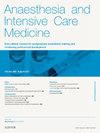Communication skills in pain medicine
IF 0.3
Q4 ANESTHESIOLOGY
引用次数: 0
Abstract
This article considers why enhanced communication techniques are particularly important in pain management consultations. Background is provided from evidence in both primary and palliative care research. The techniques are introduced and explained and include generic communication skills appropriate for all consultations and more advanced techniques. The generic skills described are empathy, allaying anxiety, breaking bad news and shared decision-making. Advanced techniques are aimed at facilitating changes in behaviour and include coaching, mentoring and motivational interviewing. The focus is on the complexities of the chronic pain presentation and a variety of potential challenges in a consultation are explored. Example scenarios are used to illustrate how aspects of each specific communication skill might be useful to prevent avoidable distress, diffuse anger and assist patients to change behaviour. The expectation is that clinicians who communicate well will help patients to make informed decisions and empower them to optimize their own pain management skills.
疼痛医学的沟通技巧
这篇文章考虑了为什么加强沟通技术在疼痛管理咨询中特别重要。背景提供了证据在初级和姑息治疗研究。介绍和解释了这些技术,包括适用于所有磋商的一般沟通技巧和更高级的技术。他们描述的一般技能是移情、缓解焦虑、披露坏消息和共同决策。先进的技术旨在促进行为的改变,包括指导、指导和动机性访谈。重点是慢性疼痛的复杂性和各种潜在的挑战,在咨询探讨。示例场景用于说明每种特定沟通技巧的各个方面如何有助于预防可避免的痛苦,扩散愤怒并帮助患者改变行为。期望是沟通良好的临床医生将帮助患者做出明智的决定,并使他们能够优化自己的疼痛管理技能。
本文章由计算机程序翻译,如有差异,请以英文原文为准。
求助全文
约1分钟内获得全文
求助全文
来源期刊

Anaesthesia and Intensive Care Medicine
ANESTHESIOLOGY-
CiteScore
0.50
自引率
0.00%
发文量
152
期刊介绍:
Anaesthesia and Intensive Care Medicine, an invaluable source of up-to-date information, with the curriculum of both the Primary and Final FRCA examinations covered over a three-year cycle. Published monthly this ever-updating text book will be an invaluable source for both trainee and experienced anaesthetists. The enthusiastic editorial board, under the guidance of two eminent and experienced series editors, ensures Anaesthesia and Intensive Care Medicine covers all the key topics in a comprehensive and authoritative manner. Articles now include learning objectives and eash issue features MCQs, facilitating self-directed learning and enabling readers at all levels to test their knowledge. Each issue is divided between basic scientific and clinical sections. The basic science articles include anatomy, physiology, pharmacology, physics and clinical measurement, while the clinical sections cover anaesthetic agents and techniques, assessment and perioperative management. Further sections cover audit, trials, statistics, ethical and legal medicine, and the management of acute and chronic pain.
 求助内容:
求助内容: 应助结果提醒方式:
应助结果提醒方式:


